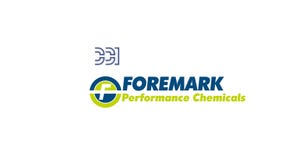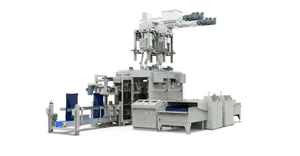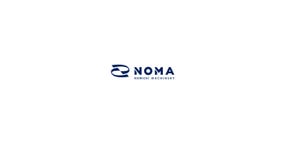Managing Technical Capability: Is the Industry Handling it Right?
Is the post-pandemic crisis what you envisioned it to be?
November 16, 2021

Jack D. Hilbert, consultant, Pneumatic Conveying Consultants LLC
As you read this column - ask yourself this question: “Is the post-pandemic crisis what you envisioned it to be?”
Some believe the pandemic is not yet over which may very well be true. Whether it is or it isn’t, there is no doubt we have seen consequences and indications are that they will likely become worse. These include upsets in the supply chain logistics of personal and industrial products. Rapidly rising energy, food, and medical industry costs. Employment levels in huge decline and not close to meeting the levels of employment opportunities that exist all across our great nation.
One of my biggest concerns is the degree of technical capability we have in our solids handling industry pool. Pre-pandemic we saw a huge portion of the available skill set take retirement as companies downsized to cut operational costs. While achieving a short-term goal, this exposed our industry to a longer-term problem.
Post pandemic we see additional resources that are no longer available either as victims of the COVID-19 virus, new retirements, or just the changing working conditions we have all come to experience as being necessary.
On one hand, this situation has become an opportunity for many to enter the world of consultants, subject matter experts, contract workers, etc., but it has also further depleted the inhouse technical capability of many companies who traditionally were rich in such resources and from where many of the current industry consultants have derived their technical roots.
A vast majority of companies today have reduced their staff levels to a point where workers barely have the time required to complete their own work responsibilities, let alone try to train others or leave their respective knowledge in some form of an organized reference resource or training tool.
Employees are significantly more mobile in today’s world as compared to previous generations when it was more common to have people who stayed in certain positions for extended periods of time. This mobility is great in terms of a person’s ability to accept new opportunities within their current place of employment or leaving to change positions and geographic locations.
There have been numerous times that I have been asked by a company to help resolve a current problem, only to find that I need only to send them a copy of a site visit report I made several years earlier on the very same issue.
In the short term, the current pool of independent technical experts who are available can provide the needed services, but if companies do not begin to reinstall their own technical expertise in-house, attrition will continue to catch up with the current resource base of consultants with no replacements and in-house technical capability will still not exist.
When we get to this situation, not only will new equipment and project lead times extend, the risk of errors, oversights, mistakes, and not applying previous lessons learned will begin to occur, potentially leading to product liability issues in performance and personal safety issues with operating equipment.
By no means am I suggesting that consultants, engineering service providers, and private industry cannot co-exist. The advent of some of our domestic educational institutions investing in material testing and educational facilities targeted at the bulk solids industries is long overdue and is now helping to fill a gap that has existed domestically for a long time. There needs to be a better balance as there was in the past, but the scales just need some tweaking.
Jack D. Hilbert is a consultant with Pneumatic Conveying Consultants LLC. He spent nearly 40 years as a registered professional engineer in several states. After working for more than 32 years for globally based companies providing pneumatic conveying systems and equipment, he joined forces with Paul Solt in the pneumatic conveying consulting business.
You May Also Like


